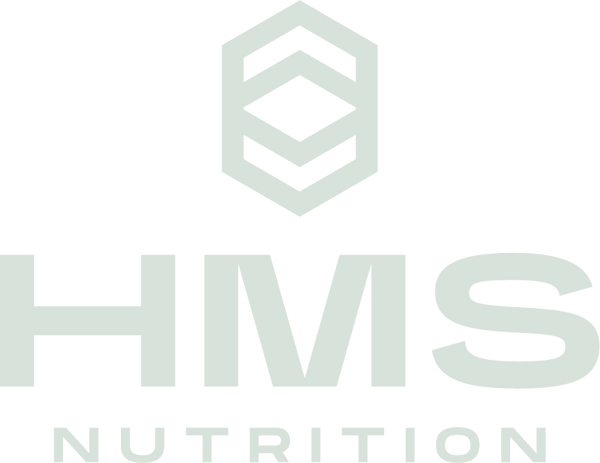
Zinc Picolinate & Hormonal Balance: What Women Should Know
Hormonal balance is a topic that resonates deeply with many women, especially those aged 35-55. As we navigate through different stages of life, our bodies undergo numerous changes, and sometimes, these changes can throw our hormones out of whack. But did you know that women have been using zinc picolinate for hormonal balance, and it could play a pivotal role in helping to restore that balance for you too? Let’s dive into how zinc picolinate can support hormonal health and what women like you should know.
Hormonal Imbalance
Hormonal imbalances can manifest in various ways, from mood swings and irregular periods to fatigue and weight gain. These symptoms are often exacerbated by menopause, stress, poor diet, and other lifestyle factors. It can feel frustrating, overwhelming, and you may even start to feel like your body is out of control. If you are experiencing any of the following symptoms you may be dealing with hormone imbalance.
Common Symptoms of Hormonal Imbalance
These symptoms can significantly impact your quality of life, but addressing them starts with understanding the underlying hormonal fluctuations.
The Role of Zinc in the Body
Zinc is an essential mineral that plays a critical role in numerousbodily functions, including immune response, DNA synthesis, and cell division. For women, zinc is particularly important because it influences hormone production and regulation, which is crucial during times of hormonal change like perimenopause and menopause.
Why Zinc is Essential for Women
Zinc supports the function of over 300 enzymes and is involved in various metabolic processes. It helps maintain a healthy immune system, promotes wound healing, and supports normal growth and development. For women, adequate zinc levels are vital for reproductive health, making it an essential nutrient to monitor.
Comparing Zinc Picolinate with Other Forms of Zinc
When it comes to zinc supplements, there are several different forms available, including zinc oxide, zinc gluconate, and zinc citrate. However, not all forms of zinc are created equal, especially when it comes to absorption and bioavailability.
When it comes to zinc supplements, there are several different forms available, including zinc oxide, zinc gluconate, and zinc citrate. Each of these forms has unique characteristics that affect how well the body can absorb and utilize the zinc they contain. However, not all forms of zinc are created equal, especially when it comes to absorption and bioavailability, which are critical factors in determining the effectiveness of a supplement.
Zinc oxide, for example, is one of the most commonly used forms in over-the-counter supplements and topical applications. However, it has relatively low bioavailability when taken orally, meaning that the body absorbs it less efficiently. This can result in a significant portion of the zinc passing through the digestive system without being utilized.
Zinc gluconate, another popular form, is often found in lozenges and supplements aimed at boosting immune health. While it has better absorption than zinc oxide, it still does not match the bioavailability of zinc picolinate. Some studies suggest that while zinc gluconate is more readily absorbed than zinc oxide, it can still cause gastrointestinal discomfort in some individuals.
Zinc citrate is known for its relatively good absorption and is often recommended for those who require a gentler form of zinc on their stomach. However, like zinc gluconate, it does not achieve the same level of absorption efficiency as zinc picolinate.
Is Zinc Picolinate Better Absorbed?
Studies suggest that zinc picolinate offers superior absorption compared to other forms of zinc. This means that your body can more efficiently utilize the zinc from zinc picolinate, making it a more effective supplement for addressing deficiencies and supporting overall health. The picolinic acid in zinc picolinate helps to enhance the absorption of zinc in the intestines, ensuring that more of the mineral is available for your body's needs.
In contrast, other forms of zinc, such as zinc oxide and zinc gluconate, may not be absorbed as effectively. This can result in lower levels of zinc in the body and potentially reduced benefits. For those looking to support hormonal balance and overall health, choosing zinc picolinate can provide a more reliable and efficient option.
How Zinc Picolinate Supports Hormonal Balance
Zinc plays a crucial role in hormone production and regulation. It’s involved in the synthesis of various hormones, including estrogen, progesterone, and testosterone. For women experiencing hormonal imbalances, zinc picolinate for hormonal balance can help regulate these hormones, potentially alleviating symptoms.
Zinc and Estrogen
Zinc is necessary for the proper functioning of the estrogen receptors. It helps modulate the balance of estrogen in the body, which is crucial during perimenopause and menopause when estrogen levels fluctuate significantly.
Zinc and Thyroid Health
Thyroid health is closely linked to hormonal balance. Zinc is essential for the production of thyroid hormones, which regulate metabolism and energy levels. Supporting thyroid function can help mitigate some of the symptoms of hormonal imbalance, such as fatigue and weight gain.
Zinc and Stress Response
Stress can wreak havoc on your hormones. Zinc supports adrenal function, which is crucial for managing stress. By supporting the adrenal glands, zinc can help reduce the impact of stress on your hormonal health.
Research and Evidence
Several studies have highlighted the benefits of zinc picolinate for hormonal balance. Research shows that zinc supplementation can improve hormonal profiles and reduce symptoms of hormonal imbalance. Additionally, many women have shared personal success stories about how zinc picolinate helped them regain hormonal balance and improve their overall well-being.
Best Practices
Potential Side Effects and Precautions
Like any supplement, zinc picolinate can cause side effects if not taken correctly. Some potential side effects include nausea, digestive issues, and a metallic taste in the mouth. Taking too much zinc can also lead to a copper deficiency, as zinc competes with copper for absorption in the body. Always consult a physician before beginning a new supplement.
Dietary Sources of Zinc
While supplements can help to fill nutrient gaps, it’s also beneficial to include zinc-rich foods in your diet. Some excellent dietary sources of zinc include:
Meat: Beef, pork, and chicken
Seafood: Oysters, crab, and lobster
Dairy: Cheese and milk
Legumes: Chickpeas, lentils, and beans
Seeds and nuts: Pumpkin seeds, sesame seeds, and cashews
Lifestyle Changes to Support Hormone Balance
While zinc can be a powerful aid, it shouldn’t be relied upon solely. Incorporating various lifestyle changes and additional supplements can significantly support hormonal health. Supplements play a crucial role in addressing deficiencies and supporting your body’s needs, but they are most effective when combined with a healthy lifestyle. Here’s why adopting healthy habits is crucial:
Other Helpful Supplements
In addition to zinc picolinate, there are several other supplements that can play a supportive role in managing hormonal health. These supplements provide additional nutrients that can help address specific deficiencies, support various bodily functions, and further enhance your overall well-being. Here’s a closer look at some of the most beneficial supplements for hormonal balance:
Magnesium: Supports relaxation and reduces stress.
Vitamin D: Essential for immune function and bone health.
Omega-3 fatty acids: Help reduce inflammation and support heart health.
Conclusion
Using Zinc picolinate for hormonal balance can offer a promising solution for women struggling with this issue. By supporting hormone production, thyroid function, and stress response, zinc picolinate can help alleviate many of the symptoms associated with hormonal fluctuations. However, it’s essential to consult with your healthcare provider before starting any new supplement to ensure it’s right for you.
Taking charge of your hormonal health can be empowering. With the right knowledge and tools, you can make informed decisions that support your well-being and improve your quality of life. Remember, you’re not alone in this journey, and there are effective strategies and resources available to help you achieve hormonal balance.
Click the link below to purchase Zinc Picolinate on Amazon.
References
The role of zinc in reproduction | Biological Trace Element Research (springer.com)
The Role of Zinc in Selected Female Reproductive System Disorders - PMC (nih.gov)
